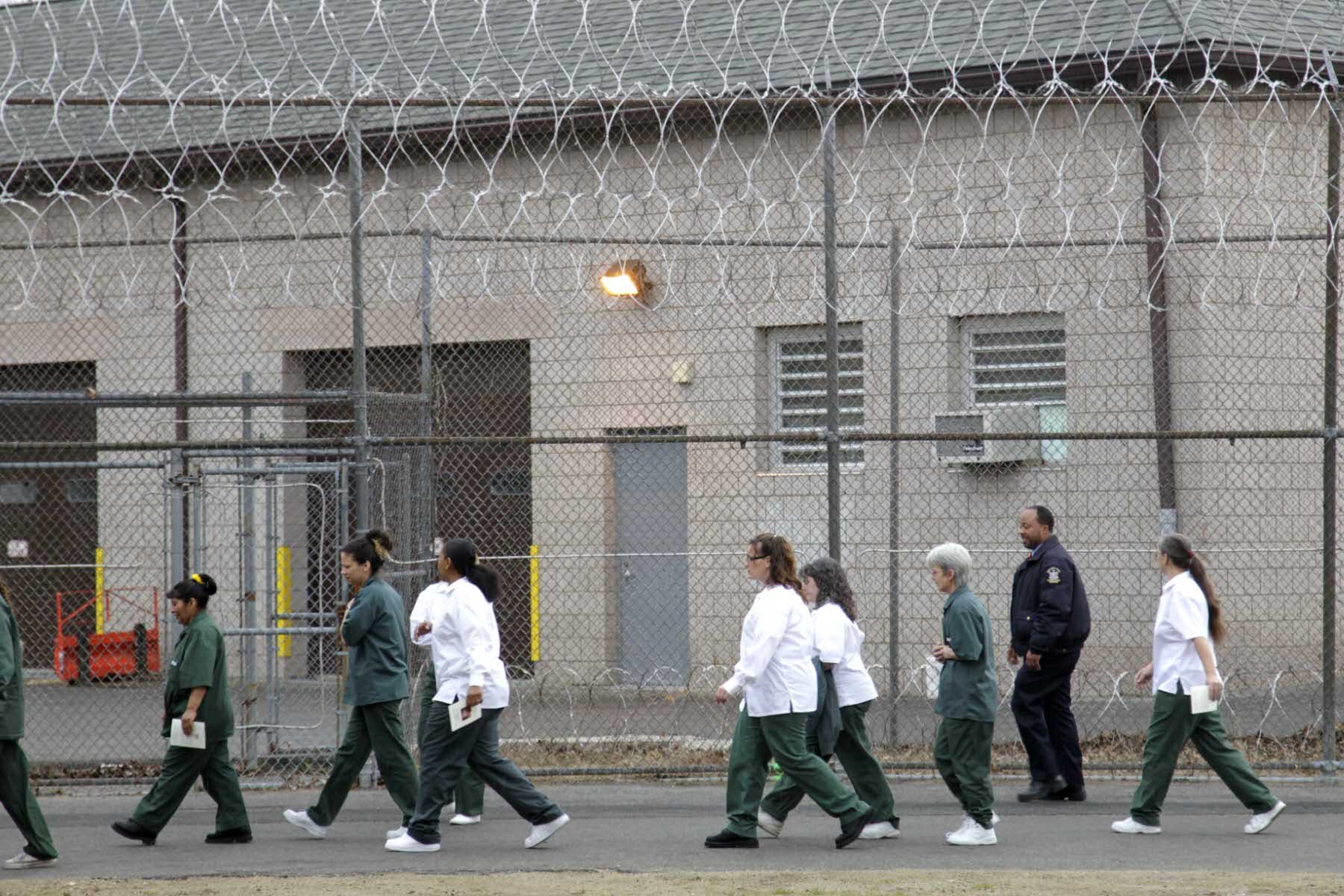Willette Benford was afraid to leave her partner, who repeatedly threatened to kill her and then herself. She lived in a constant state of dread and terror, which all came to a head one night in January 1995 when her partner instigated an argument outside a Chicago nightclub.
Benford got into the car she borrowed from her mother, anxious about what her partner would do next, and turned the key, desperate to get away. Her partner jumped up onto the hood of the car, and Benford pulled away, panicking as her partner rolled off the hood. She turned around, she said, and thought she hit something, maybe a pothole. She explained that she later learned the car had hit her partner, who died.
Benford said her attorney advised her to keep her romantic relationship a secret in court proceedings. Traumatized and in shock, she took the advice.
“He said maybe we shouldn’t talk about it, the relationship, because it would prejudice the jury against me,” said Benford, now 56. “Being Black, being in a same-sex relationship with violence involved.”
As a result, Benford said, her attorney initially presented her partner as a friend, and the judge sentenced her to 50 years in prison for first-degree murder.
She was released in 2018, 23 years after sentencing, with time served. The early release was because of a 2016 amendment to a 2015 Illinois law that added abuse as a ground to consider in sentencing.
But in many ways her case is an exception: Experts said the law has only been successful in reducing sentences twice, out of dozens of Illinois cases that were dismissed or denied. A similar law in New York has helped fewer than 20 people since it went into effect in 2019, data shows.
Kate Skolnick, a supervising attorney at the Center for Appellate Litigation, explained that many people in the legal system, and in society at large, have a “binary idea” of a victim, meaning on a subconscious level they perceive victims as people who have committed no wrong whatsoever in the situation.
“I think that it’s very hard for certain actors in the system to recognize that our clients are not just appearing before them as defendants,” said Skolnick. “They might have caused harm but they’re also people who have experienced a lot of harm.”
Rachel White-Domain, Director at the Illinois Prison Project, where she works to get domestic violence survivors resentenced, explained that society’s concept of the “ideal victim” can also be grounded in an idea of the chaste White, middle-class woman, an idea examined in a March 2021 study in the peer-reviewed journal International Review of Victimology. She said that people who have historically experienced marginalization have to confront an added barrier when they are the defendant in a criminal case. Biased perception and a limited understanding of domestic violence affects how a prosecutor charges, how a judge sentences, or how a jury decides, said White-Domain.
Some of the problems, White-Domain explained, came from the very narrow specifications outlined in the amended law. One problem, she said, is that people can only file petitions if there was no mention of domestic violence in the original sentencing case. She also explained that the amended law only considers domestic violence instigated by an intimate partner, not family members or someone else.
The law does not have a tracking mechanism, so there is no official data on how many domestic violence survivors have applied for resentencing, but as far as Alexis Mansfield, senior advisor at Women’s Justice Institute knows, Benford was the only person to be resentenced retroactively thanks to the 2015 law.
“It has been successfully used to our knowledge twice and only once retroactively,” said Mansfield. “In those two cases, it was successful, but in all of the other cases we’re aware of, over 40 cases and actually far more than that now, they were all dismissed or denied.”
The 2016 amendment to the 2015 Illinois law, Mansfield explained, had many problems, and the first was that it initially stipulated that petitions must be filed no more than two years after someone’s judgment. The time limit excludes anyone sentenced before 2014. Lawyers and advocates emphasized that courts should take society’s evolving understanding of domestic violence into consideration because many already in prison may be serving a harsher sentence than they would if sentenced today.
Some prosecutors, including the Cook County State’s Attorney’s office, recognized this two-year time limit as inapt. Mansfield explained that there is a precedent of people being able to use laws “within a reasonable time of that law’s passage,” but most judges won’t allow retroactive petitions.
Benford said that while she’s happy to be free, she continues to grieve the decades she lost. Her son was two when she first entered prison, and she missed his entire childhood and adolescence. She missed every event in his early life, every graduation, and so many birthdays. She said that her son, “who was a great kid and is a great man,” experienced the loss of two caretakers: first when she was incarcerated and then when his grandmother passed away in February 2010. She said he had to grapple with this trauma alone while Benford mourned her mother in prison. She often thinks about the time she missed, the moments with her mother she can never regain.
“My hope is that many women will be able to benefit from this law so that they won’t have to endure what I did,” said Benford.
In New York, Gov. Andrew Cuomo signed the Domestic Violence Survivors Justice Act (DVSJA) into law in 2019. The law, like the Illinois amendment, strives to offer the possibility of resentencing to domestic violence survivors who committed a crime due to the abuse they experienced. However, like in Illinois, few people have been resentenced under the DVSJA, which also does not have a tracking mechanism.
Kate Mogulescu, director of the Criminal Defense & Advocacy Clinic at Brooklyn Law School, estimated, from very preliminary data, that 15 people have been resentenced under the DVSJA. The number of denials is harder to estimate, she explained, because people can be denied at various points in the process, and some may have the opportunity to resubmit.
Mogulescu is a part of the Survivors Justice Project, a group of advocates, lawyers, academics, and formerly incarcerated domestic violence survivors formed in 2020.
“I’d like to put that question on hold for another couple of years and see,” Mogulescu said when asked about the DVSJA’s impact. “We know that over 200 women are working with lawyers right now on resentencing applications.”
The DVSJA is broader than Illinois’ amended 2015 law, but there are some limitations. Under the DVSJA, people cannot be considered if their sentence is less than eight years or if they are convicted of first-degree murder. (Had Benford been in New York, she would not have qualified under that provision.)
Anisah Sabur-Mumin, a member of the Survivors Justice Project’s advisory group, explained that advocates and lawyers in the group are creating a resource guide to reach incarcerated people with histories of abuse.
Donna Hylton said she learned about advocacy for incarcerated domestic violence survivors when she was in Bedford Hills Correctional Facility. She met Sister Mary Nerney, who visited domestic violence survivors in prison as a part of the organization Steps to End Family Violence, which provides legal services and counseling to people in prison.
When Hylton was 7, she was trafficked, brought to the United States from Jamaica in an illegal adoption, and sexually abused by her adoptive father. She told her school counselor about the debilitating trauma when she was 12, like public service announcements tell children to do, and the counselor called her adoptive mother, which led to more abuse. She ran away at 14 with a man, who also abused her. She said that years later, a co-worker’s godfather involved her in crime, which led to her arrest and incarceration as one of six people involved in the kidnapping and murder of a Long Island businessman. She was sentenced to 25 years to life in April 1985.
She said she feels remorse for what happened but that she wished more could be done for survivors of violence. She said she wants society to understand the impact of abuse.
“Abuse tears you down,” said Hylton. “It strips away your self-confidence, your self-worth, and sense of self.”
Correction: An earlier version of this article misidentified the man who involved Donna Hylton in a kidnapping and murder. He was a co-worker’s godfather, not the man she ran away with when she was 14.





